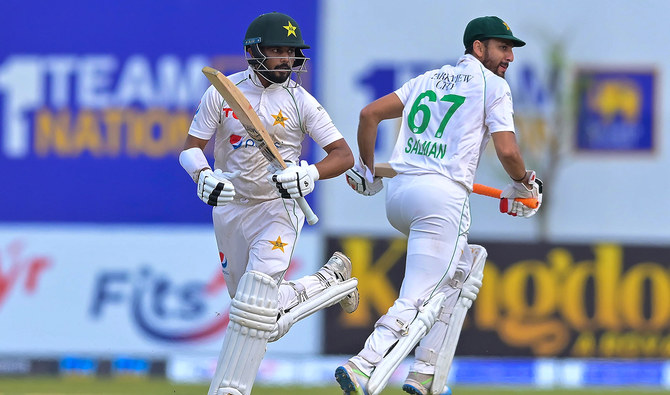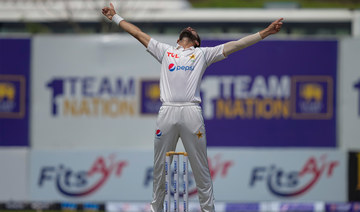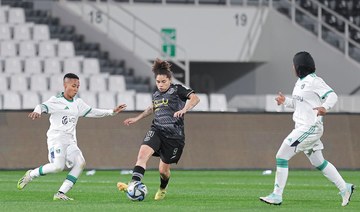Fans of cricket may find it impossible to understand the pressures that professional players are under. Although some of us have played good standard club cricket and faced tight match situations, we have not had the pressure of our career and livelihood being at stake, playing in front of crowds, screened by the media and subject to scrutiny. This is now ubiquitous, both mainstream and on social media.
It was instructive, therefore, to listen to one England’s greatest batsmen, at a time before batter became the preferred term and social media existed, provide some insights into these pressures. This was none other than Yorkshire and England’s Geoffrey Boycott. The occasion marked the launch of the 11th book under Boycott’s name — “Being Geoffrey Boycott,” published by Fairfield books — 60 years since he made his debut for England on June 4, 1964.
This was at Trent Bridge, Nottingham, against Australia. Looking at pictures of him on the day, his large glasses, cap and kit, unadorned by sponsorship logos, are a large remove from the appearance of modern-day cricketers. However, there is a commonality: that of pressure to succeed. In Boycott’s case, that pressure had been heightened when he was told, aged 17, that he needed to wear glasses. This ended his football career, during which he played for Leeds United’s under-18 team.
In his debut match he top scored in England’s first innings but could not bat in the second because of a finger injury sustained in the first. This kept him out of the following two matches before he scored his maiden Test match century in August 1964. He would go on to score 8,114 runs in 108 Test matches in a career which had its fair share of controversy and turmoil. Between 1974 and 1977 Boycott made himself unavailable for England selection focussing, instead, on captaining Yorkshire.
In late September 1978, his mother died. Two days afterwards, Yorkshire’s committee met to inform Boycott that he was to be removed as the county’s captain because of a failure to win trophies and his unpopularity amongst the players. Boycott was asked if he had suffered from mental health issues during these years. He said no, he had been close to his mother and it had saddened him to see her deteriorate week after week. His reaction was a natural one to a deeply mourned loss. The treatment by Yorkshire compounded this, in terms of its timing and nature.
From the outside this appears a cold-hearted decision, especially its timing. Boycott was devastated. He continued as a player the following season, breaking more records. This says much about his determination to succeed against the odds. He was known for being a singular man and for spending time away from teammates after play. Cricket involves a series of battles between individuals, primarily between bowler and batter. A wicket, a boundary, a catch, a century, a five-wicket haul represents individual achievement within a team setting. Opponents look to identify and expose weaknesses.
It can be argued that this is the case in all sports. However, cricket has a difference, especially with batting. If a batter makes a mistake, he or she is not straight into the next piece of action. There is time to reflect on the reason for the dismissal. It may be days before the player’s next innings. This allows much time for introspection, analysis and self-analysis.
The fear of failure is ever present, so a premium is placed on eliminating mistakes, since continued underperformance can mean the end of a contract or career. Fear induces nervousness, breeds insecurity and anxiety, creating conditions which counteract those needed to succeed. They are also conditions which sports psychologists recognise as underpinning mental illness.
Professional cricketers, as with other athletes, have an inherent desire to succeed. The consequences of failure are evident from an early age and often result in being dropped from the team. Boycott admitted to having a fear of failure during his career, of nerves and of a determination to overcome them. He said that he was able to block out all external noise when batting. This set him apart from many other players, revealing immense mental strength. He also emphasized the need for high-quality technique and practice. This was echoed by a former Australia captain, Ricky Ponting, who contends that, unless playing a certain shot or bowling a particular delivery has not become a habit, it is almost impossible to produce that shot or delivery under pressure.
Such pressure situations have grown exponentially with the advent of T20 cricket. These are evident in abundance in the current ICC men’s T20 World Cup. South Africa were 3 for three against the Netherlands and 27 for four against Bangladesh, but recovered to make scores that were just sufficient to earn victory. The recoveries were instigated by the middle order batters, notably David Miller. Imagine the pressure that was on him to perform, especially as South Africa has a history of losing matches which it should have won. Crucially, he reined in his natural game and adapted to the pitch conditions. Bangladesh required 11 runs from six deliveries to win against South Africa, two batters were caught on the boundary trying to hit sixes. The match between India and Pakistan went to a super over. Pakistan’s Mohammad Amir was entrusted with it but, under pressure, failed to bowl straight and Pakistan lost.
The margins in these pressure situations are very thin. Results can go either way, determined by the performance of those who have trained themselves to be able to handle such situations. The mentality required for this was exemplified by Geoffrey Boycott’s approach to the game, completely unlike that of an all-time great Australian all-rounder, Keith Miller, who had served with the Royal Australian Air Force in the Second World War. His dashing approach to life and cricket was summed up in a single (adapted) quote: “Pressure is a Messerschmitt directly behind you, playing cricket is not.”
How times have changed.




























